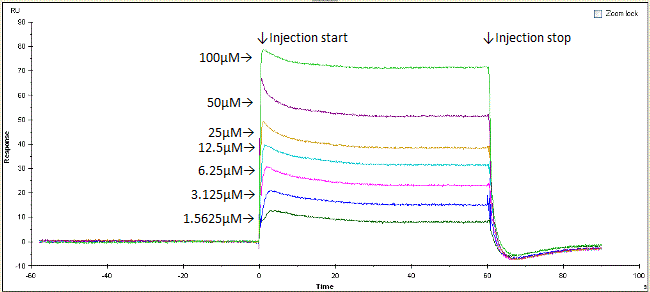Maximum quantity allowed is 999
Please select the quantity
CAS RN: 50-33-9 | Product Number: P1686
Phenylbutazone

Purity: >98.0%(T)(HPLC)
Synonyms:
- 4-Butyl-1,2-diphenylpyrazolidine-3,5-dione
Product Documents:
| Size | Unit Price | Same Day | 2-3 Business Days | Other Lead Time |
Shipping Information

|
|---|---|---|---|---|---|
| 25G |
$55.00
|
1 | 0 | Contact Us | |
| 500G |
$434.00
|
7 | 8 | Contact Us |
* Please contact our distributors or
TCI
to order our products. The above prices do not include freight cost, customs, and other charges to the destination.
* The storage conditions are subject to change without notice.
| Product Number | P1686 |
| Purity / Analysis Method | >98.0%(T)(HPLC) |
| Molecular Formula / Molecular Weight | C__1__9H__2__0N__2O__2 = 308.38 |
| Physical State (20 deg.C) | Solid |
| Storage Temperature | Room Temperature (Recommended in a cool and dark place, <15°C) |
| CAS RN | 50-33-9 |
| Reaxys Registry Number | 290080 |
| PubChem Substance ID | 87558949 |
| Merck Index (14) | 7277 |
| MDL Number | MFCD00005500 |
Specifications
| Appearance | White to Yellow to Orange powder to crystal |
| Purity(HPLC) | min. 98.0 area% |
| Purity(Neutralization titration) | min. 98.0 %(after drying) |
| Melting point | 104.0 to 108.0 °C |
| Drying loss | max. 5.0 % |
| NMR | confirm to structure |
Properties (reference)
| Melting Point | 106 °C |
| Solubility in water | Insoluble |
| Degree of solubility in water | 0.2 g/l 25 °C |
| Solubility (soluble in) | Methanol |
GHS
| Pictogram |

|
| Signal Word | Danger |
| Hazard Statements | H301 : Toxic if swallowed. H315 : Causes skin irritation. H319 : Causes serious eye irritation. |
| Precautionary Statements | P501 : Dispose of contents/ container to an approved waste disposal plant. P270 : Do not eat, drink or smoke when using this product. P264 : Wash skin thoroughly after handling. P280 : Wear protective gloves/ eye protection/ face protection. P302 + P352 : IF ON SKIN: Wash with plenty of water. P337 + P313 : If eye irritation persists: Get medical advice/ attention. P305 + P351 + P338 : IF IN EYES: Rinse cautiously with water for several minutes. Remove contact lenses, if present and easy to do. Continue rinsing. P362 + P364 : Take off contaminated clothing and wash it before reuse. P332 + P313 : If skin irritation occurs: Get medical advice/ attention. P301 + P310 + P330 : IF SWALLOWED: Immediately call a POISON CENTER/doctor. Rinse mouth. P405 : Store locked up. |
Related Laws:
| RTECS# | UQ8225000 |
Transport Information:
| UN Number | UN2811 |
| Class | 6.1 |
| Packing Group | III |
| H.S.code* | 2933.99-000 |
Application
Binding of Phenylbutazone to Human Serum Albumin
Phenylbutazone is known to have affinity for Human Serum Albumin (HSA) and to bind (interact) to drug binding site I on HSA. Those were confirmed using our phenylbutazone with Surface Plasmon Resonance (SPR) and a method using fluorescent probes. 【SPR】 Dose responses of phenylbutazone to HSA were confirmed by SPR. Biacore, as a SPR biosensor, was used for the assay, according to the user’s guide of the instrument.

<Assay condition> Sensor Chip: Series S Sensor Chip CM5, Immobilization: HAS (Amine Coupling method), Buffer : 5%DMSO in PBS. <Result> “Square wave” sensorgrams were exhibited at each concentration, and concentration dependent binding of phenylbutazone to HSA was confirmed. 【Method using fluorescent probes】The drug biding site of phenylbutazone was confirmed using fluorescent probes which bind to drug binding site on HSA. Dansylamide (DNSA) [D5405] was used as fluorescent probe for site I, and dansylglycine (DNSG) [D5406], BD140 [D4898] were used as fluorescent probes for site II, and then bindings to site I and site II were confirmed.

<Assay condition> Buffer: 1 % DMSO in phosphate buffer (pH 7.2 - 7.5); HSA: 5 µM (DNSA), 20 µM (DNSG, BD140) (50 µL/well) (Fatty acid free HSA is recommended.); Phenylbutazone: each concentration (50 µL/well); DNSA: 80 µM, DNSG: 20 µM, BD140: 20 µM (50 µL/well); Incubation: 20-25 °C for 30 min; Measurement: plate-reader with excitation = 365 nm and emission = 480 nm (DNSA, DNSG), with excitation = 365 nm and emission = 585 nm (BD140). <Result> As shown in upper diagram, inhibition against binding of dansylamide which is fluorescent probe for site I by phenylbutazone was confirmed. And also, little or extremely weak inhibition against binding of dansylglycine and BD140 which are fluorescent probes for site II was confirmed. In these ways, our phenylbutazone can be used for study of interaction with HSA. Also, DNSA [D5405], DNSG [D5406] and BD140 [D4898] can be used for study of drug binding site on HSA.
References
- Fluorescent Dye Cocktail for Multiplex Drug¬Site Mapping on Human Serum Albumin
- High-resolution and high-throughput protocols for measuring drug/human serum albumin interactions using BIACORE
- Biosensor Analysis of the Interaction between Immobilized Human Serum Albumin and Drug Compounds for Prediction of Human Serum Albumin Binding Levels
- Characterizing a drug's primary binding site on albumin
- Structural basis of the drug-binding specificity of human serum albumin
PubMed Literature
Articles/Brochures
TCIMAIL
Product Documents (Note: Some products will not have analytical charts available.)
Safety Data Sheet (SDS)
Please select Language.
The requested SDS is not available.
Please Contact Us for more information.
Specifications
C of A & Other Certificates
Please enter Lot Number
Incorrect Lot Number. Please input only the 4-5 alphanumeric characters before the hyphen.
Sample C of A
This is a sample C of A and may not represent a recently manufactured lot of the product.
A sample C of A for this product is not available at this time.
Analytical Charts
Please enter Lot Number
Incorrect Lot Number. Please input only the 4-5 alphanumeric characters before the hyphen.
The requested analytical chart is not available. Sorry for the inconvenience.



